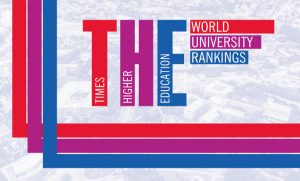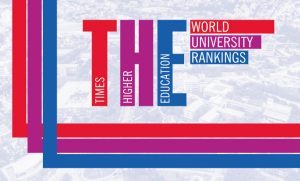The development of a SARS-CoV-2 vaccine will be coordinated by the researchers André Báfica and Daniel Mansur, both from the Department of Microbiology, Immunology and Parasitology at Universidade Federal de Santa Catarina (UFSC). The funding for the project is from the National Council for Scientific and Technological Development (CNPq), which released a call for proposals on ‘Research to confront COVID-19, its consequences, and other severe acute respiratory syndromes’, whose results were announced on 7 July. The project is a partnership between UFSC faculty and researchers from Universidade Federal do Rio de Janeiro (Brazil), Universidade Federal de Minas Gerais (Brazil), University of Cambridge (United Kingdom), as well as from the Instituto Butantan (Brazil) and the Karolinska Institutet (Sweden).
The proposal is to produce a recombinant BCG: to take advantage of the BCG vaccine platform (an old and safe vaccine) for the new coronavirus by expressing proteins that induce an effective immune response against SARS-CoV-2 for a longer period of time. “One of the recent findings in the (medical) literature is that immune responses against this virus also involve T lymphocytes cells, such as CD4 and CD8. With a recombinant BCG, we assume that there will be induction of this type of response. If this is true, when we look into the future, we would have a double vaccine in the same injection, which would act against tuberculosis and against COVID-19, and children would take it when they are still in hospital. Clearly, this is a long way off. We are in the early stages, drawing the targets from a molecular point of view” explained Professor Báfica. “In a conversation with researchers from Australia, I just learned that mixing BCG with purified SARS-Cov-2 proteins increases the immune response against the virus. This preliminary data indicates that we are on the right track.”
The expectation is that the first experiments will be carried out in January 2021. “Initially, we will work on the vaccine vectors. This first part, constructing the recombinant bacteria, takes about six months to be completed. Then we need to test whether this vaccine prototype induces an immune response against the coronavirus. We have some ways to measure it, for example, whether the vaccine induces neutralizing antibodies against the viruses that are circulating in our region”, said the researcher.
In parallel to these investigations, the researchers will look at the basic science in the dynamics of the immune response: what antibodies have been generated and where they bind. “For the virus to enter the human cell, it needs a receptor, a kind of molecular binding. What do we want with a vaccine? That the antibodies block this binding, so it won’t infect the cell. The neutralizing antibodies have high affinity for these virus proteins”, explains Báfica. “The pro of using BCG is that it is a vaccine administered to 500 million people a year around the world. If the first goal of the project works according to plan, the vaccine will express virus proteins in a safe vector and, in our hypothesis, it will induce a more efficient T-cell response than some of the vectors that are circulating around. However, to be really sure of it, we need to test it, this is science”, points out the Professor.
The funding approved by CNPq will provide for technological development grants to support the research groups. The Santa Catarina State Foundation for the Support of Research and Innovation (FAPESC) will open a Call for Applications to award graduate scholarships and postdoctoral grants to those receiving the CNPq funding in the state. “The funding will establish a platform to develop these vaccines here at UFSC, and it will involve advanced training in molecular biology, immunology, virology and microbiology for the people who will be selected”, explains the researcher.
The funds allocated by CNPq will not guarantee a complete biosafety level III (BSL-3) laboratory – the lack of laboratories and funding obstructed research on the new coronavirus. From R$ 2 million, the amount has been reduced to R$ 1.7 million, and it still needs to be shared with partner institutions. “The experiments with the vaccine require a BSL-3 laboratory. We won’t have a complete BSL-3 laboratory, but a good part of it. We have yet to attract resources to purchase one last equipment, and we are doing this by applying for funds from other agencies”, said Báfica, who recently visited the new building of the School of Biological Sciences (CCB). A company specialized in BSL-3 laboratories, approved by the Ministry of Health, has already analyzed the space destined for the facility in the building. The new laboratory would also enable UFSC to advance in other science aspects. “It will be a facility built with public money and it can contribute with other biomedical research projects, as well as provide a faster response for our society”, concluded the researcher.
By Caetano Machado ‒ Agecom/UFSC | Translated by SINTER/UFSC
Read the original article here.





 The Times Higher Education (THE) has published on Wednesday, 28 October, the results of the World University Rankings 2021 by Subject, listing the broad areas with the best performances in the top universities in the world. The Universidade Federal de Santa Catarina (UFSC) was one of the 1.512 universities evaluated and it was best ranked in the areas of Health and Education. In both subjects, UFSC was ranked 301-400 overall and was among the eight best universities in Brazil.
The Times Higher Education (THE) has published on Wednesday, 28 October, the results of the World University Rankings 2021 by Subject, listing the broad areas with the best performances in the top universities in the world. The Universidade Federal de Santa Catarina (UFSC) was one of the 1.512 universities evaluated and it was best ranked in the areas of Health and Education. In both subjects, UFSC was ranked 301-400 overall and was among the eight best universities in Brazil.
